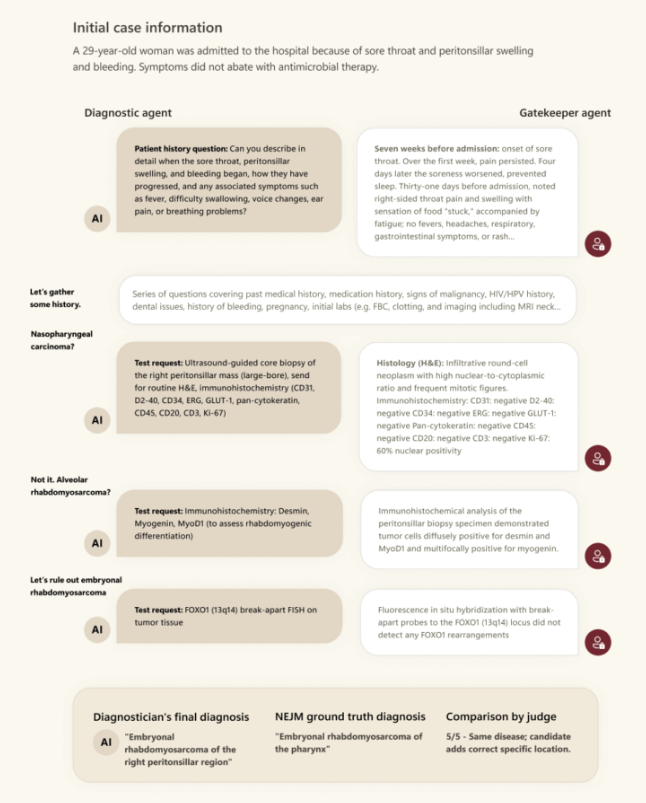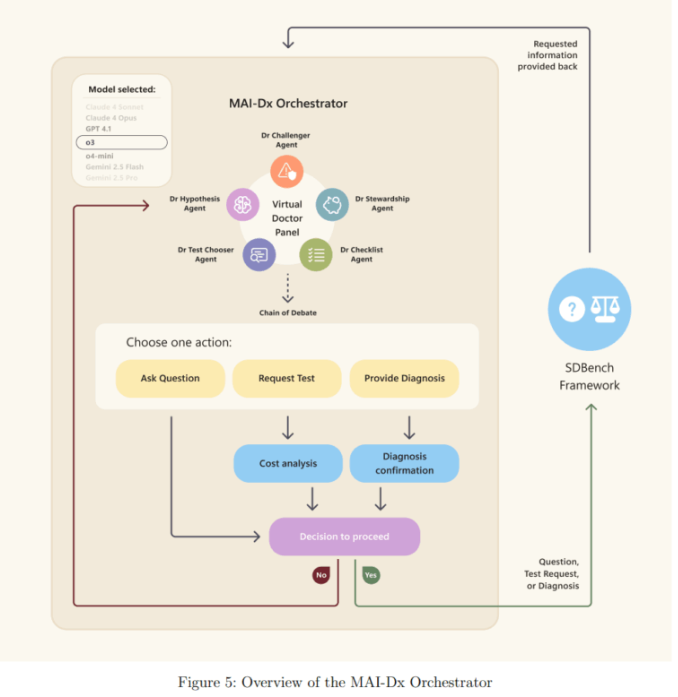Microsoft's MAI-DxO AI Boosts Medical Diagnosis Accuracy
Microsoft's MAI-DxO AI Revolutionizes Medical Diagnostics
Microsoft has launched MAI-DxO, a groundbreaking artificial intelligence system designed to transform medical diagnostics. According to newly published research, this technology demonstrates four times the diagnostic accuracy of experienced physicians while reducing healthcare costs by nearly 70%.

How MAI-DxO Works
The system was evaluated using the innovative Sequential Diagnostic Benchmark (SDBench), which simulates real-world clinical decision-making processes. Unlike traditional AI tests that provide all data simultaneously, SDBench mirrors actual practice by releasing information incrementally as the diagnostician requests additional tests or asks clarifying questions.
The research team, whose findings appear in "Sequential Diagnosis Using Language Models", developed SDBench using 304 complex cases from The New England Journal of Medicine. The benchmark employs a "gated model" to control information flow and can generate synthetic test results to prevent accidental clue leakage.
Performance Metrics
In comparative testing:
- 21 experienced physicians from the U.S. and U.K. achieved 19.9% accuracy at an average cost of $2,963 per case
- The MAI-DxO system combined with OpenAI's o3 model reached 79.9% accuracy at $2,397 per case
- The standalone o3 model achieved 78.6% accuracy but at a prohibitive $7,850 per case

Virtual Medical Team Approach
MAI-DxO's architecture simulates a collaborative medical team consisting of:
- Hypothesis doctors
- Test selection specialists
- Questioning clinicians
- Cost monitoring analysts
- Checklist reviewers
This multi-agent approach prevents premature diagnostic fixation and mimics the consultation process in top-tier medical institutions.
Limitations and Future Directions
Researchers acknowledge several constraints:
- SDBench focuses exclusively on complex teaching cases rather than routine clinical presentations
- Cost calculations represent rough estimates without real-world variables
- Participating physicians were general practitioners without specialist consultation access
- The system hasn't been tested against common disease patterns seen in daily practice
The team emphasizes that while results are promising, further validation is needed before clinical implementation.
Key Points:
- ⚡ Breakthrough Accuracy: MAI-DxO demonstrates 4× higher diagnostic precision than human doctors
- 💰 Cost Efficiency: System reduces diagnostic expenses by nearly 70% compared to current standards
- 🔄 Sequential Processing: SDBench's innovative testing methodology better reflects real clinical workflows than traditional AI benchmarks